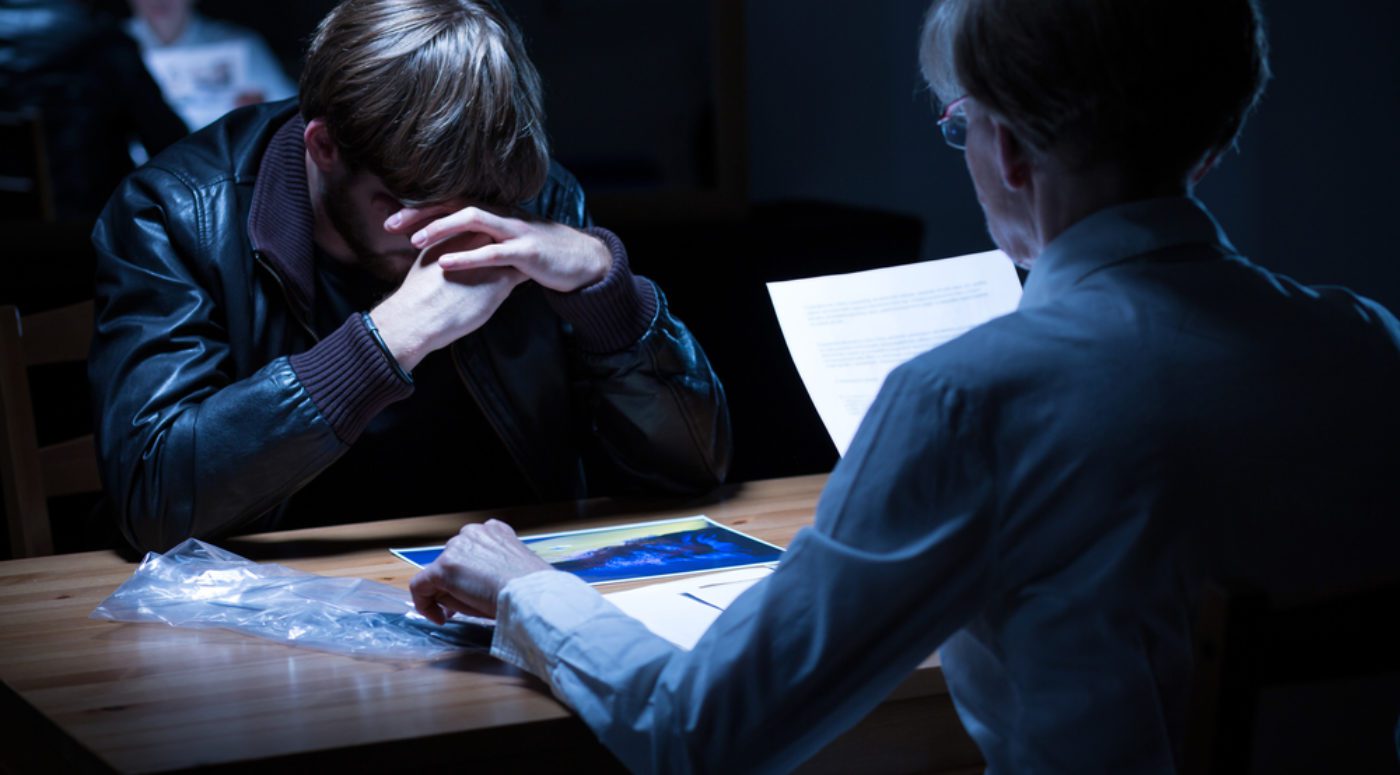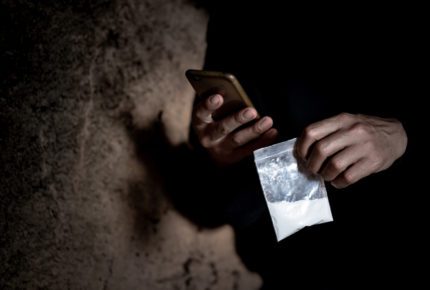

It’s the call that no parent, partner, or friend ever wants to hear. Receiving a telephone call from your loved one at the police station informing you that they have been arrested is a chilling moment, and you probably have many questions flooding through your mind. You might be asking yourself what procedure the police will be following, and how long they are permitted to detain a person in custody. You might want to attend the police station to bring something important for the detained person, such as medicine or the contact number of their lawyer, and are wondering if this is allowed. Or perhaps you are wondering if you can visit them to offer moral support. This article aims to answer your questions in relation to what happens when a person is taken into police custody, and whether you have the right to visit them. What happens when someone is taken into police custody in England and Wales?
When a person is arrested and taken into police custody in England and Wales, the codes of practice under the Police and Criminal Evidence Act 1984 (PACE) set out regulations in respect of how they should be treated. Code C sets out the provisions for detention, treatment, and questioning of detained persons by police officers. Meanwhile, Code H sets out these provisions in the context of questioning persons detained under the Terrorism Act 2000. Code D sets out the rules relating to obtaining biometric information.
Overarching principles
The overarching principle is that people should not be kept detained at the police station longer than necessary. Code C states that ‘all persons in custody must be dealt with expeditiously, and released as soon as the need for detention no longer applies.’ As in the outside world, police officers are entitled to use reasonable force against a detained person, whilst carrying out their duties. However, excessive or arbitrary force by police officers is not lawful.
Vulnerable persons and juveniles
Police officers are obliged to look out for any signs that a person taken into custody may be vulnerable and require special treatment. For example, if a person has mental health issues or a learning disability. If a person appears to be severely mentally unwell such that they appear to lack mental capacity, the police must follow the procedure to have them detained under the Mental Health Act 1983.
Where the detained person is a child under the age of 18, or is classed as vulnerable, there must be an ‘appropriate adult’ present to assist them. The role of an appropriate adult is to safeguard the rights, entitlements, and welfare of the detained person. This could be a parent, social worker, or some other responsible adult.
Procedure at the police station
When a person goes into police custody, they should be told by the custody officer that they have the right to consult a solicitor and the right to have someone informed of their arrest. They have a right to access a copy of the PACE codes of practice. They also have the right to an interpreter, if they need one. They must be told which offences they have been arrested for. If they are arrested for further offences whilst they are in custody, they must also be informed of these.
When a person is detained at a police station, the police are obliged to open a custody record that details all of the events that take place at the police station in relation to that person. The detainee has the right to obtain a copy of the custody record. This can be a useful tool if the detainee later wishes to challenge the lawfulness of their treatment at the police station.
The detainee should be given a written notice of these rights, and the other rights to which they are entitled including the right to remain silent and the right to access documents and other evidence essential to challenge the charge against them. They should also be notified of the maximum period for which they can be detained.
The police will then usually take biometric and forensic information from the detainee, such as fingerprints, other body prints, and blood samples. The provisions for this are set out in Code D. If a person does not consent to their fingerprints being taken, reasonable force may be used to do this.
If the police are concerned that a person may be physically or mentally unfit to be interviewed, they must ask a healthcare professional to perform an assessment to confirm their fitness to be interviewed. Where the detained person requests that a solicitor be present, they cannot be interviewed until a solicitor is in attendance and they have had the opportunity to consult with them in private. If the detained person did not request a lawyer, they must be reminded of their right to legal advice at the start of the interview.
After the interview, a charging decision will then be made. This is sometimes made by the police or, for more serious offences, the evidence is sent to the CPS for them to make a decision regarding whether to charge. Once a person has been charged, they will either be remanded in police custody to appear at the magistrates court or released on bail. If the decision is made not to charge the suspect, they must be released either with or without bail.
How long can the police keep someone in custody?
The law on police custody time limits is set out in PACE.
Section 41 sets out the general rule that a detainee cannot be kept for more than 24 hours without charge. This is calculated from the time that the person arrives at the police station, or the time 24 hours after the person’s arrest, whichever time is earlier. For example, say a person is arrested at 4pm on Tuesday for drunk driving leading to a car accident. They are taken straight to the hospital because of injuries sustained in the accident. They are discharged and arrive at the police station at 9am on Wednesday. The police would have to make a charging decision within 24 hours of 4pm on Tuesday, so by 4pm on Wednesday.
A person can be kept for longer than 24 hours, up to 36 hours, if this is authorised by the superintendent of the police station (Section 42). This authorisation can be only be given if certain conditions apply:
- Detention is necessary to secure or preserve evidence relating to an offence
- The offence is an indictable offence
- The investigation is being conducted diligently and expeditiously
If the police obtain a warrant from the Magistrate’s Court, they can detain a person for a further 36 hours, up to a maximum of 72 hours in total (Section 43).
Am I allowed to call family or friends in police custody?
A person who has been arrested is permitted to contact one person to inform them that they have been arrested. They are permitted to speak to the person for a reasonable period of time. They are unlikely to be allowed to contact multiple people. However, they will be able to also speak on the telephone with their solicitor, if the solicitor has not yet arrived at the police station in person. If the detainee is a foreign national, they have the right to contain the High Commission or embassy for their country. A detained person must also be given writing materials if they request them.
Can I visit someone in the police station?
The general rule is that visitors are not allowed in police custody suites. Unlike prisons, there are no provisions for visiting prisoners who are in police custody. Because of the relatively short time that individuals are usually held in police station, there is no right for them to have social visits from friends or family.
The exception to this is if a person is vulnerable or a juvenile. In these situations, an appropriate adult must attend the police station to ensure the detained person’s rights are upheld. In the case of a young person this is likely to be a parent or a guardian. For a vulnerable person who is an adult, this could be a partner or a carer.
In addition, if the detained person has essential belongings that they need such as medicine, or spectacles, a friend or family member will be permitted to drop these items off at the police station so that they can be passed on to the detained person.
Where to get more help
If a loved one has contacted you to say that they have been arrested, contact a criminal defence solicitor immediately. At Stuart Miller Solicitors, our experienced team of solicitors are ready to provide specialist advice. We will help ensure that the rights of the detained person are respected during their time in police custody, and provide important initial advice in respect of their options regarding how to respond to police questioning. Contact us for a no obligation consultation today.
OUR COMMITMENTS TO YOU:
-
Responsive
A legal expert will consult you within 24 hours of making an enquiry.
-
Empathetic
We will always treat you with trust, understanding and respect.
-
Specialised
Your case will be handled by an expert who specialises in your type of offence.
-
Proactive
We will take early action to end proceedings as soon as it is practically and legally possible to do so.
-
Engaged
You will be kept updated on your case at all times. We will provide a named contact available to answer your questions.
-
Caring
We understand this is a difficult and stressful time for you and your family. Our team will support you every step of the way.
-
Tenacious
We will never give up on your case. We fight tirelessly to get you the best possible outcome.

